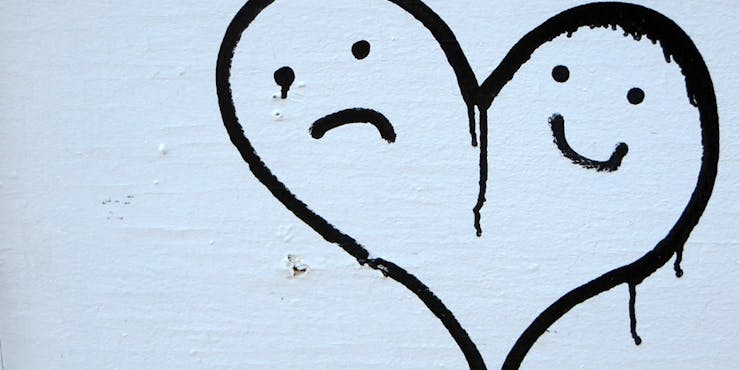According to new research published last week, bipolar symptoms of mania and depression may be worsened by cannabis use. The study, conducted at Lancaster University (UK), analyzed clinically structured diary entries of 24 bipolar patients who consumed cannabis a minimum of three times a week.
Bipolar disorder (BD) and cannabis are a common couple, and you don’t have to look any further than the Leafly strain database to get an idea of how prevalent the connection is. In light of their findings, the researchers wonder to what extent these perceived benefits are overstated.
Over the course of six days, subjects filled out diary entries in which they described their mood and included notes on their recent cannabis use. This approach, known as the experience sampling method (ESM), reduces memory bias commonly found in retrospective reporting and typically captures more detailed data. Final findings were adjusted to consider other factors like age, sex, and other drug use.
Here’s what they found:
- Cannabis use was associated with positive emotions, but also with increased manic and depressive symptoms.
- Marijuana use was not associated with self-medicating behavior, meaning subjects tended to use cannabis when feeling good rather than after a manic or depressive episode.
While these findings match up with previous research on cannabis use and bipolar disorder, this study comes with limitations and unanswered questions:
- Its small sample size of 24 British participants overgeneralizes the diversity of BD patients and their backgrounds.
- Subjects were “well and out of episode,” meaning patients were not currently experiencing the acute expression of bipolar disorder. How would findings change with varying intensities of BD?
- Subjects could only report the nature of their cannabis consumption using three exclusive categories: skunk, resin, and grass. Would you have the same results with varying chemical profiles, delivery methods, and doses?
- Results were solely based on data generated from diary language, which was interpreted by study authors. To what degree do their biases guide their reading of these accounts?
- No control group was used in this study. Are these results unique to BD patients, or would you see similar results in non-bipolar cannabis consumers?
As it stands, the relationship between cannabis and BD is up for debate. Other studies have identified potential therapeutic applications of cannabinoids in bipolar disorder, and there’s a wealth of anecdotal evidence echoing that claim. But the causes, mechanisms, and nuanced nature of bipolar disorder are poorly understood and not everyone responds to cannabis in the same way. It’s possible that in a larger study, you’d see more complexity in the relationship between cannabis and bipolar disorder. Maybe marijuana’s ability to help is dependent on a vast number of variables left unconsidered here. We don’t know, and we can’t know until more thorough research adds to this tiny fragment of the much, much larger picture.
Image credit: Eden, Janine, and Jim via Photopin cc





